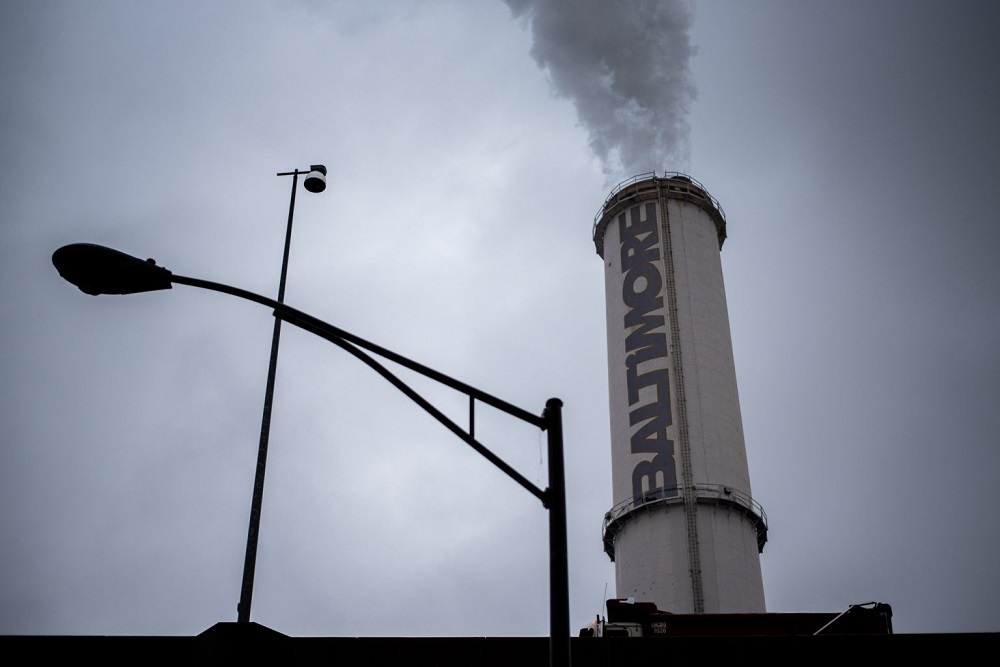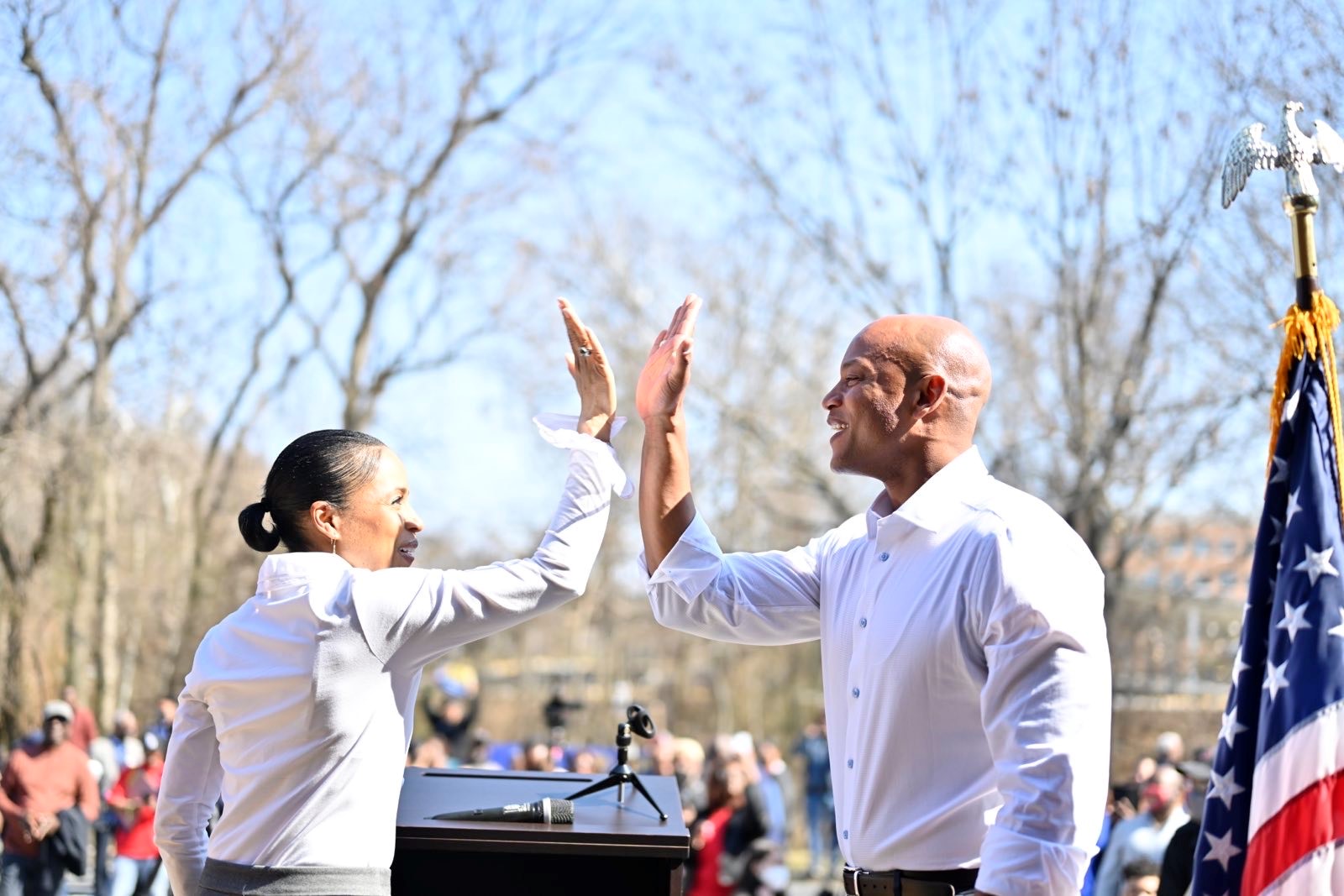
By Molly Finch, Erin Hamner, Autumn Powell and Aiman Raza
The writers are current graduate students at University of Maryland, Baltimore County, in the Interdisciplinary Consortium for Applied Research in the Environment (ICARE) trainee program. This program, funded by a National Science Foundation Research Training grant, trains master’s students in community-engaged environmental science and social justice research focused in and around the Baltimore Harbor.
As students working to address climate and environmental issues and preparing to join the Maryland workforce, we were excited to have a climate event on our UMBC campus earlier this month, which was co-sponsored by Maryland Matters. The panel included leaders from multiple agencies across the Moore-Miller administration, highlighting a trans-sectoral commitment to climate action and a real embrace of comprehensive policy implementation to respond to our pressing climates issues. Bringing this conversation to our public university created an opportunity for the current generation of students to feel welcomed into the conversation that affects our future.
With the passage of the Climate Solutions Now Act of 2022, the agency leaders highlighted how Maryland has placed itself as a leader among states on setting bold and aggressive targets for reducing greenhouse gas emissions. We appreciated how the panelists made use of the word “bold” to discuss how the administration could weave together actions on renewable energy development, infrastructure and transportation, and planning across scales.
When we hear of this commitment to be “bold,” it signals a green light as the future climate solutions workforce to push boundaries. But we were also left wondering: If we are laser-focused on being “bold and aggressive,” is there a chance we miss the opportunity to address injustice and ignore the environmental pollution and climate change problems that Marylanders experience today? In his inaugural address, Governor Moore reframed the state’s slogan as “Leave No One Behind,” and we’d like to see bold climate action applied in that context, prioritizing justice.
Keep justice central in green energy transition
Transitioning to green energy is challenging, and it was great to hear more details on the administration’s initiatives. A prevalent issue Baltimore communities face is waste burning from the incinerator downtown. Our ICARE colleague completed her thesis about waste management practices in Baltimore City, including a stark illustration of how communities in South Baltimore suffer respiratory complications due to pollution from waste incineration.
An issue the state has left unresolved is how we can have a green energy plan that includes waste incineration. By removing waste incineration from Maryland’s Renewable Portfolio Standard (RPS), the state would help ensure that we are no longer crediting ourselves for climate action that actively harms public health. A bolder step towards justice would be to respond to the calls from South Baltimore organizations to declare an air pollution emergency in the area and invest in larger-scale composting and waste management options that could be designed and managed by the communities themselves.
EV and transparency
When expanding clean energy and green alternatives to transportation, we must consider and account for the potential consequences of resource extraction in other places. Communities should be at the forefront of this conversation, especially communities most vulnerable to the effects of contamination from resource extraction.
State agency leaders mentioned supporting the growth of the electric car industry to eventually phase out the use of gas-powered vehicles. This would be great for cutting our carbon emissions in Maryland, but could this have unintended consequences in other areas? One of our ICARE fellows is a Diné tribal member in Arizona, and just this month, the Biden administration announced it would open up an area in Arizona’s Patagonia Mountains for mining of “critical minerals,” which include key components for electric vehicles and batteries. Along with the risk this poses to local biodiversity and ecosystem health, this has major consequences for the communities of color that reside near these mines who were not considered as this project has been fast-tracked.
Developing solutions with communities
Developing solutions to climate change that also achieve justice will be challenging, uncomfortable, and at times hard to perceive. Lt Governor Miller’s comment on climate solutions really resonated with us, that “the people closest to the challenge are those closest to the solution.” She highlighted a plan to go to different counties around Maryland and listen to communities reflect on their needs.
As part of ICARE our community focus is on Baltimore City. We learn from community members and leaders about the city to join the community in their efforts for justice. Often these forms of community engagement open doors to new possibilities and creative solutions. A series of community conversations on climate action might yield insights into how Marylanders are experiencing the effects of a changing climate now and generate ideas on how the state can support climate change resilience, even in ways that combine with its efforts to transition to green energy.
We want to continue being part of these types of conversations that could focus the state’s goals for bold climate action on efforts that center justice and prioritize not only the mitigation of greenhouse gas emissions but reduce potential risks to communities in Maryland and beyond.




 Creative Commons Attribution
Creative Commons Attribution